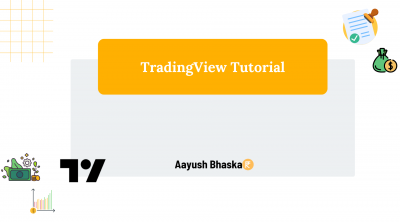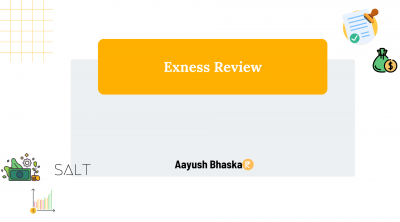Are you sick of losing money in the stock market?
Don’t be concerned; you’re not alone.
Many inexperienced traders make simple blunders that may be avoided. This post will go through the top 15 mistakes that novice traders make and how to prevent them.
These mistakes may be costly, ranging from failing to have a strong investing plan to failing to diversify your portfolio. However, with a little information and a careful strategy, you can improve your trading game and start seeing genuine returns.
Whether you’re new to trading or a seasoned pro, this paper will help you avoid common traps and become a more effective trader. So sit back, unwind, and prepare to learn how to trade like a master!
Importance of Avoiding Mistakes as a Trader
Avoiding errors as a trader is critical to success. Each blunder might cost you money and harm your image. But, more significantly, avoiding errors can aid in your development as a trader.
You may improve your tactics, polish your skills, and eventually become a more effective trader by learning from your failures.
Avoiding mistakes as a trader may sound simple, but it’s not as easy as it seems, especially for those who are new to the game. To ensure success, it’s crucial to familiarize yourself with the most common blunders made by traders.
By knowing what to look for, you may avoid making these mistakes and set yourself up for success. So, don’t be frightened to make errors if you learn from them!
1. Jumping In Without a Plan
The world of trading can be alluring, especially with the recent surge in Indian investors due to the pandemic.
However, diving into the world of trading without a plan is a recipe for disaster. In fact, many Indian traders have fallen into this trap, jumping in without a clear strategy, only to end up losing their money.
It’s like going on a road trip without a map or GPS. Sure, you might end up reaching your destination eventually, but it’ll take a lot longer and be a much bumpier ride. The same applies to trading.
Without a solid plan in place, you’ll be making guesses and taking risks that could cost you big time.
So, if you’re considering joining the trading world, make sure to plan ahead. Take the time to educate yourself, understand the market, and set realistic goals. Trust me, your bank account will thank you for it.
2. Chasing the Hot Stock
Investing in the stock market is always thrilling, especially when you hear about a certain stock that is performing extraordinarily well and generating headlines.
The desire to jump on the bandwagon might be strong, but it’s critical to remember that the stock market is a volatile environment where anything can happen at any time.
Unfortunately, many inexperienced traders get caught up in the enthusiasm and end up following the hot stock without completing the appropriate analysis.
In India, one example is the recent jump in the stock of Adani, which has been performing remarkably well in recent months. However, the stock subsequently dropped, resulting in substantial losses for many speculators.
Before making an investment, it is critical to undertake a comprehensive study and comprehend the potential dangers rather than going in without a strategy.
It’s often tempting to go with the flow, but as a trader, you must keep your cool and make educated judgments based on study and analysis.
3. Letting Emotions Drive Decisions
Letting emotions drive your decisions is a surefire way to end up losing money in the stock market. As a trader, it’s important to maintain a level head and stick to your strategy, no matter how much you may be emotionally attached to a stock. Unfortunately, this is easier said than done.
Have you ever been so captivated by a stock that you broke all your own rules?
That’s exactly what happened with Deepak Nitrite for me. Despite putting in countless hours of research, my emotional attachment led to a heavy investment and ultimately, a substantial loss. It’s a lesson learned and a reminder to always stick to your strategy.
The lesson I learned was that, as a long-term investor, it’s okay to be emotionally attached to a stock that has been consistently performing well. However, as a trader, emotions have no place in the game.
Stick to your strategy, keep a level head, and don’t let your emotions drive your decisions.
4. Underestimating the Power of Research
As a trader, it’s easy to get caught up in the excitement of the market and assume you have a firm grasp on things. During the shutdown, I began reading a few articles and subscribed to a slew of trading-related YouTube videos.
I was overconfident, believing that I understood enough to execute trades without conducting appropriate research. However, this attitude cost me money as well as important time that I could have spent learning more.
Trading requires much research. It enables you to make informed judgments, avoid potential traps, and seize opportunities. Make the mistake of presuming you know everything or depending on the views of others.
Take the time to research industry trends, study financial reports, and keep up with the newest news. Investing in your own knowledge and comprehension will pay dividends in the long term.
5. Ignoring Diversification
When it comes to trading, diversification can make all the difference in the world. Imagine putting all your eggs in one basket, only to see the bottom fall out. That’s exactly what can happen when you ignore the power of diversification. Unfortunately, it’s a mistake that far too many traders make.
I’ve seen it firsthand. Friends, colleagues, and even family members, all putting their hard-earned money into one stock, only to see it tumble. But when you spread your investments out, you reduce your risk. You cushion yourself from market shocks and give yourself a better chance of success in the long run.
And let me tell you, as someone who’s been there, it’s a lesson worth learning. Personally, I never made the mistake of ignoring diversification. I was a serious investor from the get-go, and I knew the value of spreading my investments across a variety of assets.
6. Being Greedy
Being greedy in the stock market is like a double-edged sword. On one hand, you want to hold onto a winning trade for as long as possible to maximize your profits. On the other hand, holding on for too long can lead to missed opportunities and big losses.
That’s where I come in – I’ve been there, done that!
I’m guilty of keeping my sights set on a big payout and holding onto a trade for too long. It’s always a struggle between wanting to make the most of a good situation and knowing when to cut your losses. But hey, we’re only human, right?
I personally have a target of a 15% profit when I swing trade, but sometimes the momentum of a stock can be so strong that I get swept up in the excitement and hold on too long. Only to regret it later when the stock falls below my target.
So, while it’s important to be greedy to a certain extent, it’s equally important to know when to let go and move on to the next trade. That’s the delicate balance of stock trading and the key to avoiding big losses.
7. Failing to Stay Informed
Staying informed is essential for success in any career, including trading. Unfortunately, many traders get behind on the newest news, trends, and insights in their preferred market. Ignoring the flow of information may be a recipe for catastrophe, whether it’s due to a lack of time, motivation, or simply being too busy.
Imagine discovering that the company whose stock you held was embroiled in a massive controversy or made a significant statement affecting its profits.
Ouch! Suddenly, what appeared to be a terrific investment has taken a significant fall, leaving you feeling as though you lost out. That is why it is critical to be informed.
In my experience, taking aside a few minutes each day to read the news and perform some brief research may make a significant difference in my transactions.
It’s critical to understand what’s going on, remain up to date on market trends, and be alert to any red signs. You can make educated judgments and remain ahead of the game if you have the appropriate knowledge.
8. Relying Too Much on Leverage
In trading, leverage may be a double-edged sword. While it might increase your profits, it can also increase your losses. It works similarly to nitro-boost in a race vehicle in that it increases speed while also increasing the chance of a crash.
That is why it is critical to exercise caution when leaning too much on leverage.
It is preferable to utilize it as a tool rather than allowing it to dictate your trading selections. A trader must know when to utilize leverage and when to coast, much as a race car driver must know when to use nitro and when to coast.
One particular example I had was when I was utilizing leverage on a transaction that was going well at the time but rapidly went south. I was taken by surprise, and before I knew it, my account was in the red. That taught me to be more conscious of how much leverage I was using and to always have a backup plan in place in case things went wrong.
9. Not Having a Risk Management Strategy
When it comes to trading, it’s critical to have a strategy in place to deal with the ups and downs. It’s like driving on a gorgeous mountain road without seat belts or an appropriate auto insurance policy if you don’t have a risk management strategy.
You might be having a great time, but one unexpected curve in the road can rapidly transform the pleasure into a tragedy.
That is why I usually aim for a risk-to-reward ratio of at least 1:2. This indicates that for every rupee I’m ready to risk, I want to benefit by two rupees.
This assists me in determining the size of my position, which is the number of shares or contracts I take on a transaction. I can sleep comfortably at night because I have a good risk management approach, even when the markets are volatile.
10. Not Knowing your Personality
Imagine being a steady and calculated swing trader, only to be tempted by the fast-paced world of intraday trading because everyone else around you is making a killing. Sound familiar?
This is where the importance of knowing your personality, or as we like to call it, KYP (Know Your Personality), comes into play. Just like you wouldn’t invest in a stock without doing your due diligence, you shouldn’t jump into a trading strategy that doesn’t align with your personality.
Not understanding your own tendencies, preferences, and limitations can lead to disastrous consequences and missed opportunities. So, before you hit that buy button, take a step back, reflect on who you are as a trader, and make sure the strategy you choose is a match made in heaven for your unique personality.
11. Believing in Get-Rich-Quick Schemes
Believing in get-rich-quick schemes is a common mistake among new traders. They see their friends making money quickly and think they can do the same. But the truth is, if it sounds too good to be true, it probably is. T
hose so-called “tips” and telegram groups promising overnight wealth are often scams that leave traders with empty pockets and shattered dreams.
The stock market is not a place to make quick money. It requires patience, discipline, and a well-planned strategy. The road to financial freedom is long, but the reward is worth it.
So, instead of falling for get-rich-quick schemes, focus on building a solid foundation for your trading journey. Educate yourself, create a plan, and stick to it. Remember, slow and steady wins the race.
12. Being Impulsive with Trades
Impulsive trading occurs when you make rash, emotive judgments without adequate thought or investigation. It’s a classic problem for traders who get caught up in the heat of the moment and make fast judgments that might backfire.
Discipline is one of the most fundamental aspects of successful trading; impulsive trades can throw that discipline out the window.
The key to avoiding hasty transactions is to have a good plan in place and adhere to it, even if it appears like everyone else is making money by the bucketload.
It is preferable to remain on the sidelines and wait for a favorable chance rather than making a hasty move that might harm you. In other words, sometimes not making a transaction is preferable to making a terrible one.
13. Holding On to Losers for Too Long
Traders frequently fall into the trap of holding on to losers for too long. It’s difficult to accept when a trade isn’t working out, and it’s much more difficult to cut your losses.
However, doing so is critical for preserving your trading cash. Opportunity cost is the cost of missed opportunities, and it is important in trading.
Assume you’re keeping a losing investment while the market presents additional possibilities to profit. By refusing to sell losing shares, you are foregoing potential earnings that could have been gained by investing in a more lucrative deal.
This is the penalty for hanging on to losers for too long. As a result, it’s critical to stick to your stop losses and limit your losses as necessary.
14. Neglecting to Monitor Your Portfolio
Trading is like a game of chess, and it’s important to always keep an eye on the board. Neglecting to monitor your portfolio is like playing with blindfolds on – you may as well be throwing darts at a dartboard and hoping for the best.
Sure, Warren Buffett’s famous quote about investing and forgetting for decades sounds alluring, but it’s not exactly applicable to the fast-paced world of trading.
‘News’ floods the internet, and each piece of information has the power to impact your portfolio. So, it’s crucial to keep a close eye on your investments and stay on top of market developments. Just like you can’t just set a course and forget about the navigation, you can’t just buy stocks and forget about them either.
So, don’t neglect your portfolio; give it the love and attention it deserves!
15. Not Learning from Mistakes
One of the most crucial aspects of being a good trader is to learn from your errors. It is not enough to just record faults; we must also actively seek to remedy them. Making errors is unavoidable in the fast-paced world of trading.
The worst blunder of all is failing to learn from them. Every mistake we make is an opportunity to learn and progress, a stepping stone on the path to becoming a better trader.
Whether it’s failing to manage our portfolio, hanging onto losers for too long, or falling for get-rich-quick scams, it’s critical that we reflect on what went wrong and figure out how to avoid it in the future.
After all, the best way to avoid making the same mistakes is to use what we’ve learned to our advantage.
Conclusion
Well, there you have it!
By now you must have realized that trading is a complex and challenging field, but it can also be incredibly rewarding if done right.
By avoiding these common mistakes, you’ll be one step closer to reaching your trading goals. Remember, every mistake is an opportunity to learn and grow.
So, be bold, be fearless, and always keep learning!
And who knows, you might just end up being the next trading legend. Happy Trading!








Leave a Reply